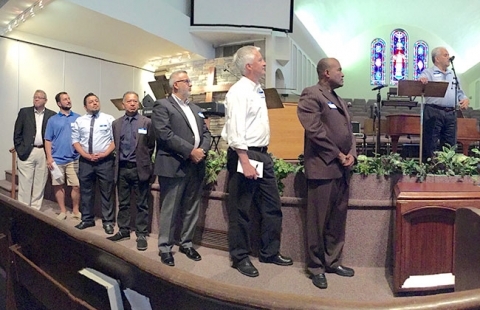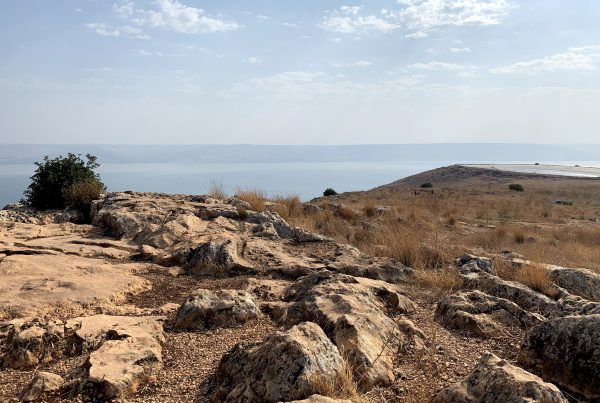The Classis of the Americas was formed by the Far West region on November 4, 2017.
On Monday, June 10, General Synod 2019 voted to approve a recommendation brought by the Commission on Church Order in regard to the bounds of classes.
Traditionally, RCA classes have been formed by geographical location, “supported by the conviction that proximity aids the assembly in fulfilling its responsibilities of guidance and governance in the shared call to ministry and mission,” according to a paper the commission wrote on the matter.
However, classes have not always been formed according to location. Historically, the Classis of Germania was bound by a shared language—German. Today, affinity classes include City Classis, with a common context in urban ministry, and Classis of Americas, with a shared focus on ministry in Hispanic communities.
Thus, the commission found that “bounds,” as defined in the Book of Church Order, cannot be limited to geography.
“Geography alone, in any age, but particularly in the twenty-first century, is an insufficient condition for the kind of covenantal relationship envisioned by Scripture and our order for the church’s assemblies,” the commission wrote in its paper.
As it pertains to the formation of ethnic classes, the commission examined how to “best receive the various gifts of the body so that due honor is given to the members while maintaining the unity, purity, and peace of the church that Christ calls us to.”
“In light of our growing multiethnic and multilingual presence, we must recognize the various gifts our different congregations bring to the one body of Christ,” the commission continued. “We should recognize these gifts as coming from the Spirit of God and ask how best to structure our classes to receive these gifts for the sake of the body of Christ.”
The commission finds the formation of ethnic or linguistic classes complex because of the potential such bounds have for the flourishing of the classes and the potential for their further isolation. With such formation, congregations that feel they do not have an equal voice might be more fully received in a classis of similar congregations, wrote the commission in their paper. On the other hand, the voices and gifts of such congregations may continue to be marginalized and not heard by the denomination, the commission countered.
Without prohibiting affinity classes, especially ones formed on the basis of ethnicity, the Commission on Church Order advises regional synods to take care when forming, combining, disbanding, or transfering classes. General Synod concurred and voted to advise synods to follow these guidelines:
- Classes should be created, maintained, and structured so that they can fulfill their primary calling—guidance and governance.
- Ethnic classes should be formed only after prayerful discernment and with caution.
- The creation and structure of classes should seek to maintain the unity, purity, and peace of the church.
- Classes should be created, maintained, and structured so that all the gifts of congregations can be fully received.
The paper and recommendation of the Commission on Church Order came as response to a recommendation brought in the 2018 Report of the Professorate, which was approved at General Synod 2018. The request was for the commission, in collaboration with the Commission on History and Commission on Theology, to present “its interpretation of the word ‘bounds’ in the Book of Church Order, defining specifically its relationship to geographic boundaries and its implications for ethnic classes” (MGS 2018, p. 322).





